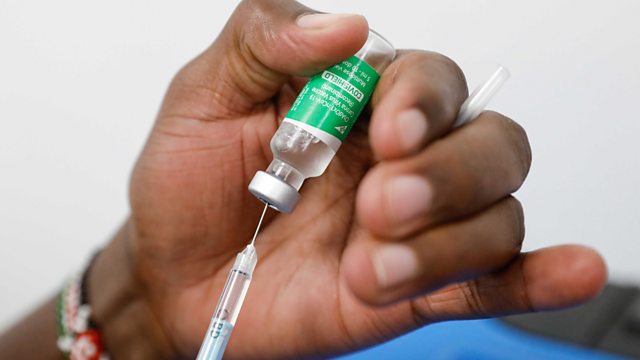AstraZeneca vaccine: 'A vanishingly small risk, against a very real risk to our health'
The director of the Oxford Vaccine programme, says the possible blood clotting risk of the AstraZeneca vaccine should be seen in the context of the health risks of the pandemic.
The Oxford AstraZeneca vaccine has had a particular spotlight on it because so much of the world is depending on it: it is both cheap and does not require special storage. However, conclusions from the European and the UK regulator said evidence for the links between the vaccine and blood clotting, while extremely rare, were plausible. The Joint Committee on Vaccination and Immunisation, or JCVI here in the UK has advised that under 30-year-olds should be offered an alternative to AstraZeneca; Denmark and Norway have suspended its use; France is only giving it to over 55s and Germany to over 60s. Professor Andrew Pollard, the Director of the Oxford Vaccine programme, says the findings give him reasurance about the vaccine monitoring system, and how the AstraZeneca vaccine is at the forefront of the global vaccination programme.
"There's a signal of very rare event that has been incredibly difficult to pick up yet the regulators have spotted something that needs looking into and that gives me great confidence that if there are any concerns with any vaccines that the system is on top of that."
"We have to set it against the context that this pandemic has killed 120K people in the UK, and we will have further waves of the disease in the year ahead, and we're talking here, if it is connected, about a vanishinghly small risk, against a very real risk to our health."
Photo: A dose of the AstraZeneca vaccine is prepared Credit: Reuters
Duration:
This clip is from
More clips from Newshour
-
![]()
'Why is he being held in a military jail?'
Duration: 07:16
-
![]()
We’ll advise Trump on ‘what isn't going to work’
Duration: 03:36






